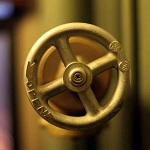Needle valves from Alloy Valve Stockist
Looking for valves in exotic alloys? We stock needle valves in 6MO 6moly), 254 SMO, 904L, AL-6XN, Alloy 20, Aluminum Bronze, Duplex, Hastelloy, Incoloy, Inconel, Monel, Nickel alloy, Austenitic stainless steel, Super Duplex, Titanium, Uranus B6 and Zirconium.
Needle valves are usually used in flow metering applications, especially when a constant, calibrated, low flow rate must be maintained for some time, such as the idle fuel flow in a carburator. Note that the float valve of a carburetor (controlling the fuel level within the carburetor) is not a needle valve, although it is commonly described as one. It uses a bluntly conical needle, but it seats against a square-edged seat rather than a matching cone. The intention here is to obtain a well-defined seat between two narrow mating surfaces, giving firm shutoff of the flow from only a light float pressure.
Since flow rates are low and many turns of the valve stem are required to completely open or close, needle valves are not used for simple shutoff applications.
Since the orifice is small and the force advantage of the fine-threaded stem is high, needle valves are usually easy to shut off completely, with merely “finger tight” pressure. The spindle and/or seat of a needle valve, especially one made from brass, are easily damaged by excessive turning force when shutting off the flow. Small, simple needle valves are often used as bleed valves in hot water heating applications. Unlike a ball valve, or valves with a rising stem, it is not easy to tell from examining the handle position whether the valve is open or closed.


